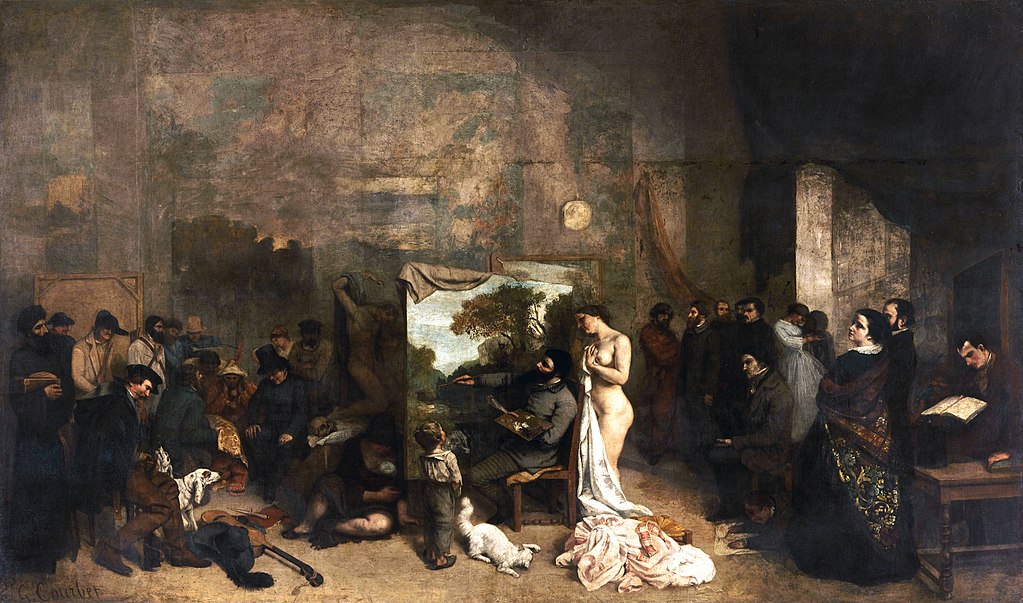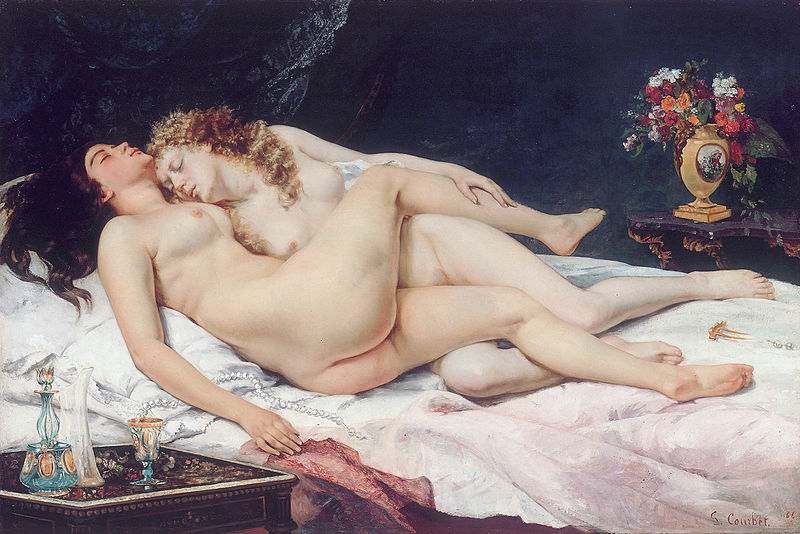Courbet chose the subjugation of women in European society as the next target of his artistic antagonization. He painted realistic depictions of conventional women, many of them nude. Young Ladies Beside the Seine from 1856 drew criticism for displaying two prostitutes, one of them showing her underwear. Sleep from 1866 featured two nude women embracing each other in bed. The work is noted for breaking the stigma of homosexuality in art and sparked a trend of lesbian paintings that would take off during the Impressionist era.


In 1870, France went to war with Prussia and was soundly defeated a year later. In March of 1871 a revolution overthrew the French government and the Paris Commune was established to create a new socialist government. As the most outspoken and devoutly socialist artist in France, Courbet was chosen by the Commune to reform France’s art establishment. He removed all government regulation of museums and competitions, effectively ending art censorship and preferential treatment of established artists. The Commune was defeated by the French Army in May and old government re-established control. Courbet was arrested for his role with the Commune and served six months in jail. After his release he went into self exile in Switzerland where he died in 1877 at age 58.
